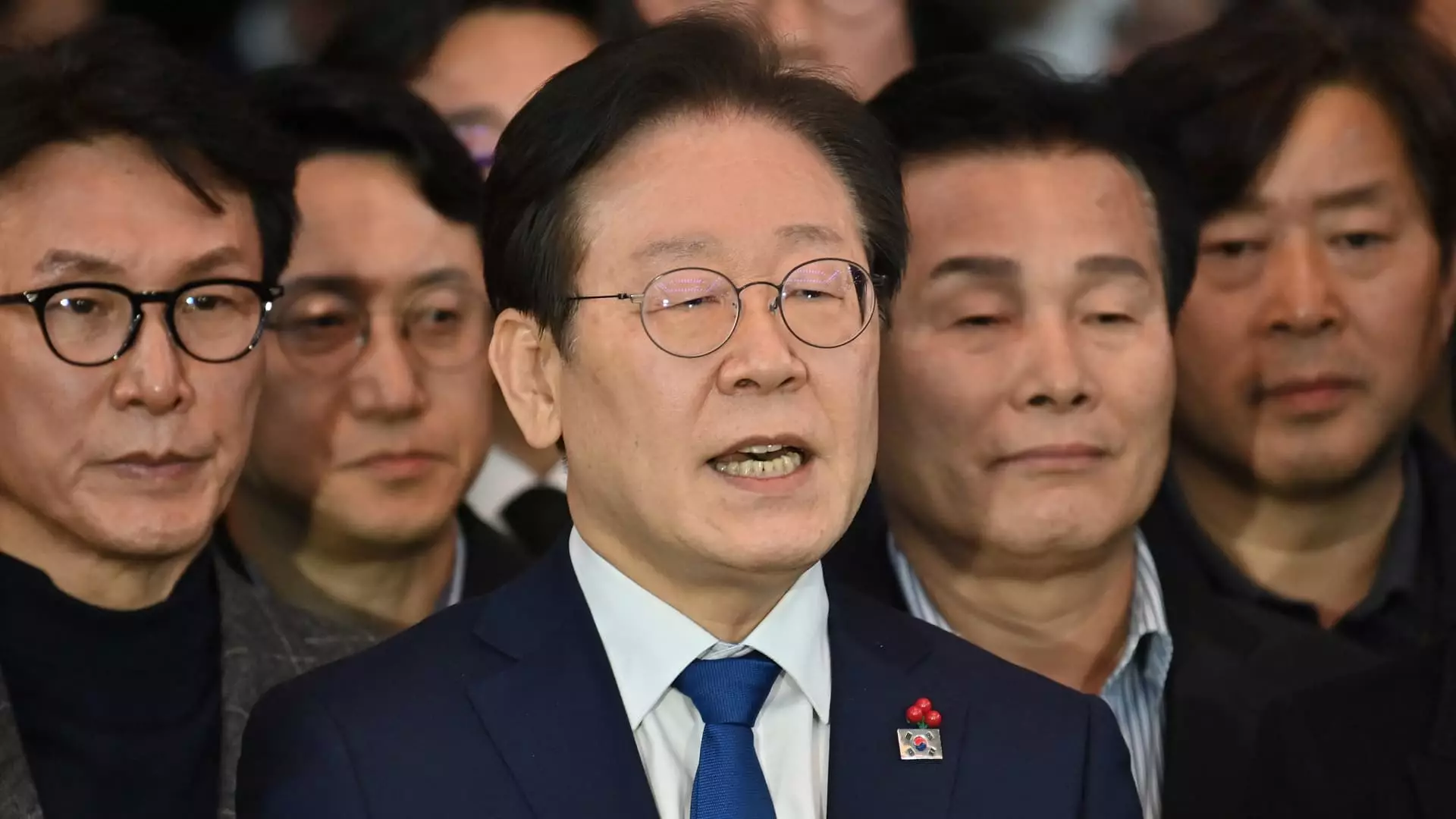As the political landscape of South Korea remains tumultuous, Presidential frontrunner Lee Jae-myung presents himself not only as a candidate but as a beacon of hope for a nation grappling with grave challenges. In light of President Donald Trump’s controversial trade tariffs, Lee has articulated a radical rethink of diplomatic timelines—a move that could either solidify his standing or plunge him into political peril. The urgency of the current situation cannot be overstated, as the stakes could weigh heavily on the country’s economic future and its essential relationships abroad.
The impending election is rooted in a backdrop of upheaval following Yoon Suk Yeol’s impeachment for declaring martial law. This unprecedented decision turned the political sphere upside down, leaving voters fraught with uncertainty. Lee’s rise in opinion polls reflects a yearning for stability and sound governance, challenging the deeply entrenched powers of conservatism that have dominated South Korean politics. Yet, with power comes the pressing duty to address pressing issues head-on, most notably trade negotiations with the United States.
Diplomacy or Plunder?
Lee’s assertion that current tariff negotiations should benefit both nations invites scrutiny of the existing methods of diplomacy. He aptly titled these one-sided deals as “plunder,” suggesting that South Korea has often been on the receiving end of exploitative terms. This perspective can resonate with many South Koreans who feel sidelined in international discussions dominated by larger powers. In an age where cooperation is paramount, Lee’s stance could provide a fresh lens through which to view diplomacy—one that emphasizes reciprocity and mutual respect instead of subservience.
His call for flexibility in the negotiation timeline exemplifies a responsive approach, contrary to the rigid frameworks often employed by his predecessors. By insisting that imposed deadlines by external powers should be revisited, Lee embodies a diplomatic pragmatism that stands to benefit South Korea. His proposal to craft an extra budget dedicated to the economy is another testament to his willingness to prioritize homegrown solutions over foreign impositions, aligning with the center-wing liberalist ethos of placing citizens first.
A New Economic Agenda
In a world where economies are facing unprecedented challenges, Lee’s pledge to form a dedicated task force to combat economic slowdowns is not merely a campaign promise; it is an essential strategic response to a multitude of factors dragging the nation down. His commitment to crafting “immediately actionable economic measures” lays bare an emphasis on urgency that resonates in a society where consumer confidence is fickle and growth is stagnating.
Yet, implementing such ambitious economic strategies is fraught with difficulties. Lee’s ability to navigate the complexities of economic recovery while contending with a politically charged atmosphere will be a true test of his leadership. Will he be able to rally support for transformative policies, or will he face backlash from entrenched interests that fear change? The answer to this lies in how effectively he can communicate his vision to a populace desperately in need of clarity and hope.
Reimagining Security in a Tense Region
Lee’s approach to dealing with North Korea diverges sharply from the hawkish stance of his predecessor. By advocating for a balance between military readiness and diplomatic engagement, Lee embodies a nuanced understanding of the geopolitical challenges that define inter-Korean relations. His pragmatic lens appears to recognize that military might will not suffice; dialogue is imperative for fostering stability on the peninsula. Despite the inherent difficulties, this advocacy for peace presents a shifting paradigm that offers a flicker of optimism amidst despair.
This new philosophy of coexistence, however, will be met with skepticism by those who believe that security comes solely from strength. Lee stands at a crossroads; his ability to foster dialogue while maintaining a strong defense could very well spell the difference between a thawing relationship with the North or a return to hostilities. His conviction to steer the nation towards cooperative solutions could redefine South Korea’s place in a volatile region.
Lee Jae-myung’s candidacy represents not just a political shift, but a pivotal moment in South Korea’s trajectory as he seeks to redefine diplomacy, economic policy, and inter-Korean relations in ways that prioritize mutual benefit and cooperation. The outcomes of his efforts could reshape the narrative for future generations seeking both stability and prosperity.



Leave a Reply